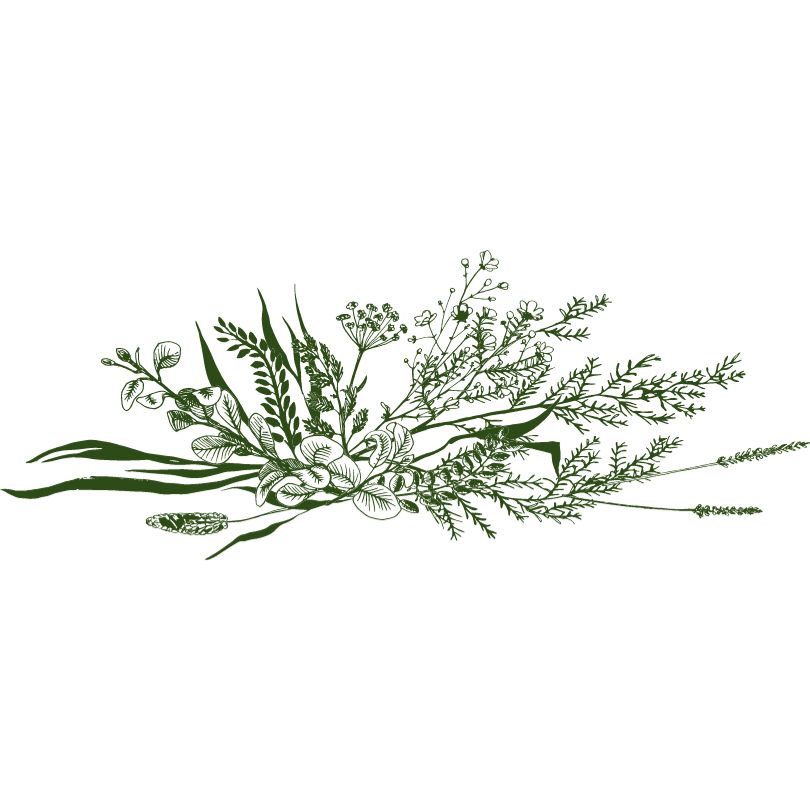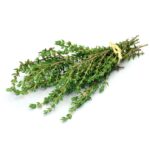Headache Relief the Natural Way: Powerful Herbs to Soothe Your Pain
Headaches can be caused by a number of different things. Here’s a short list of just a few things that might cause a headache.
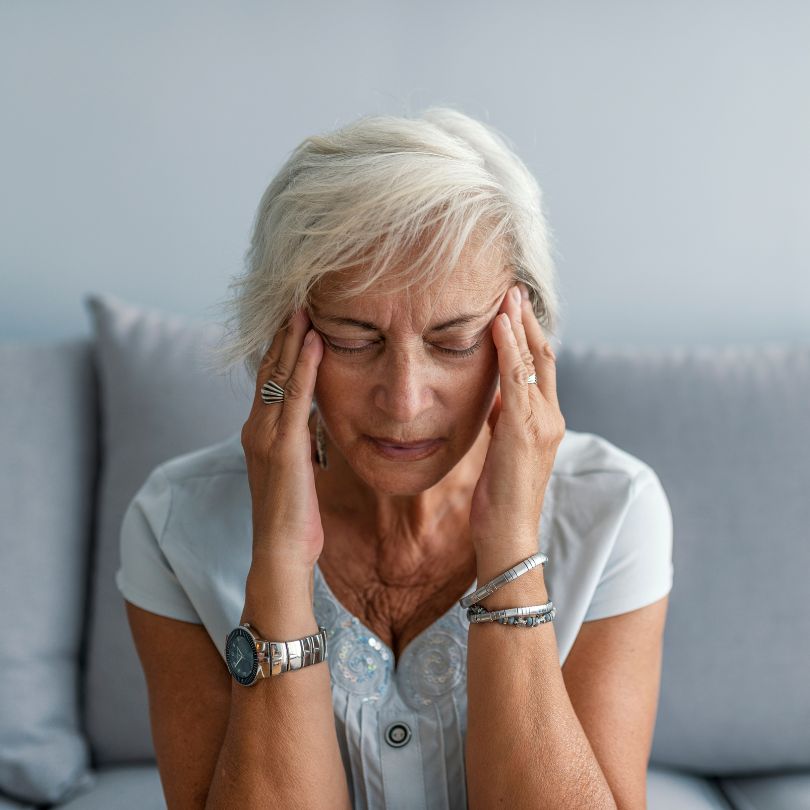
- Stress
- Lack of sleep
- Illness
- Your back is out
- Dehydration
- Eye strain
Some are muscle related and some are not. But each can cause a headache that can make a day miserable. In most cases herbs can help relieve any of these.
Let’s run through each of them and find out, first how each is causing you pain and then how an herb or other natural remedy might help relieve it.
Stress
If stress is the cause of your headache you possibly have a lot of tension somewhere in your shoulder area or up the back of your neck somewhere. Or maybe in your jaw area and you’re clenching your teeth. In most cases if you release the tension the headache will ease.
But sometimes that’s easier said than done.
When this type of headaches comes on, we find ourselves, rubbing our own shoulders and neck trying to relax the muscles to find relief. Sometimes this works and sometimes not. I’ve found it’s really hard to relax enough massaging this yourself to really relieve the pain.
Finding someone else to massage your shoulders and neck usually helps more. It’s much easier to relax this way. Again, easier said than done.
But in either case unless you get rid of the stress, that tension is likely to return and serve you up another dose of pain.
So what can you do?
This is where herbs can be an ally. There are herbs that help us relax, help us cope with stress, help us cope with changes in life and help us not fret over things so intensely.
Some of these herbs are relaxants and some are nervines.
Relaxants help us relax and calm our mind. These can be things like lavender, lemon balm, catnip, skullcap or valerian. They can be used as a tea, powder or tincture. Most of these make a great tea and the warmth from the tea and the act of just sitting and sipping a warm cup of tea can help add to your relaxation. With valerian, I would suggest a tincture. Trust me, while it’s wonderful at relaxing you, it’s really not a sipping tea.
I’ve given you just a very short list of the more common relaxants to help calm and soothe your mind to help get rid of a headache.
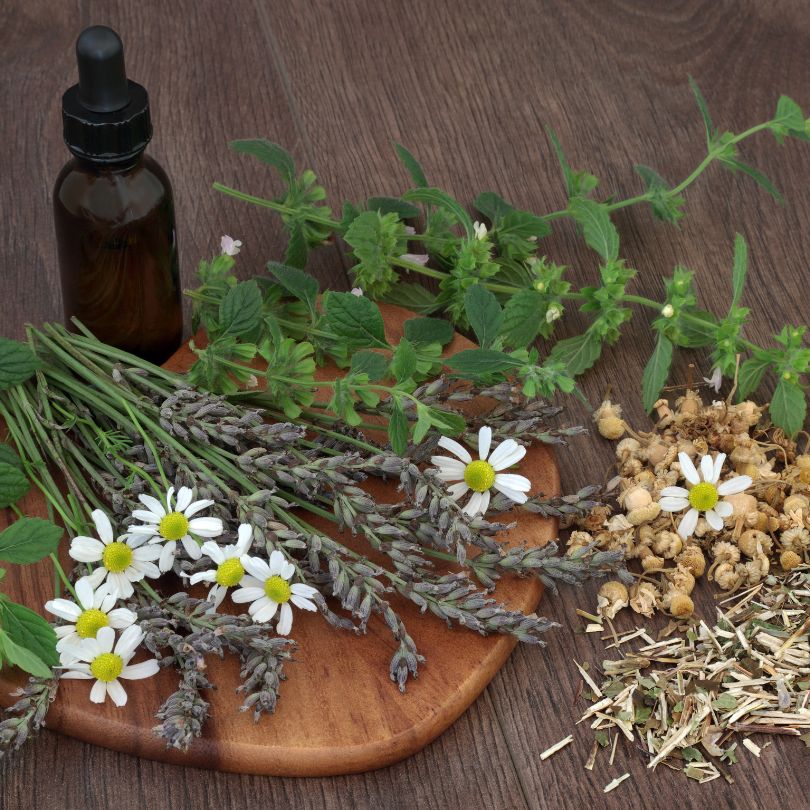
Nervines help soothe your nervous system which in turn will allow you to relax and not feel so stressed and worked up. These include things like milky oats or oat straw, which work best when drank as a tea or infusion regularly over a period of time. That’s something that works over the long term at bringing your nervous system back to a normal state.
You can also use chamomile, passion flower or St. John’s wort. And you’ll notice a lot of overlap as this can include lemon balm, lavender, skullcap and valerian too.
Again all of these would work great as a tea, made into a pastille from powder form or as a tincture.
Lack of sleep
Lack of sleep is the cause of a lot of health issues that most folks don’t connect back to it. These conditions can seem so unrelated and disconnected from a night of sleep.
Lack of sleep can cause everything from gut health issues to cognitive loss to a lack of immunity.
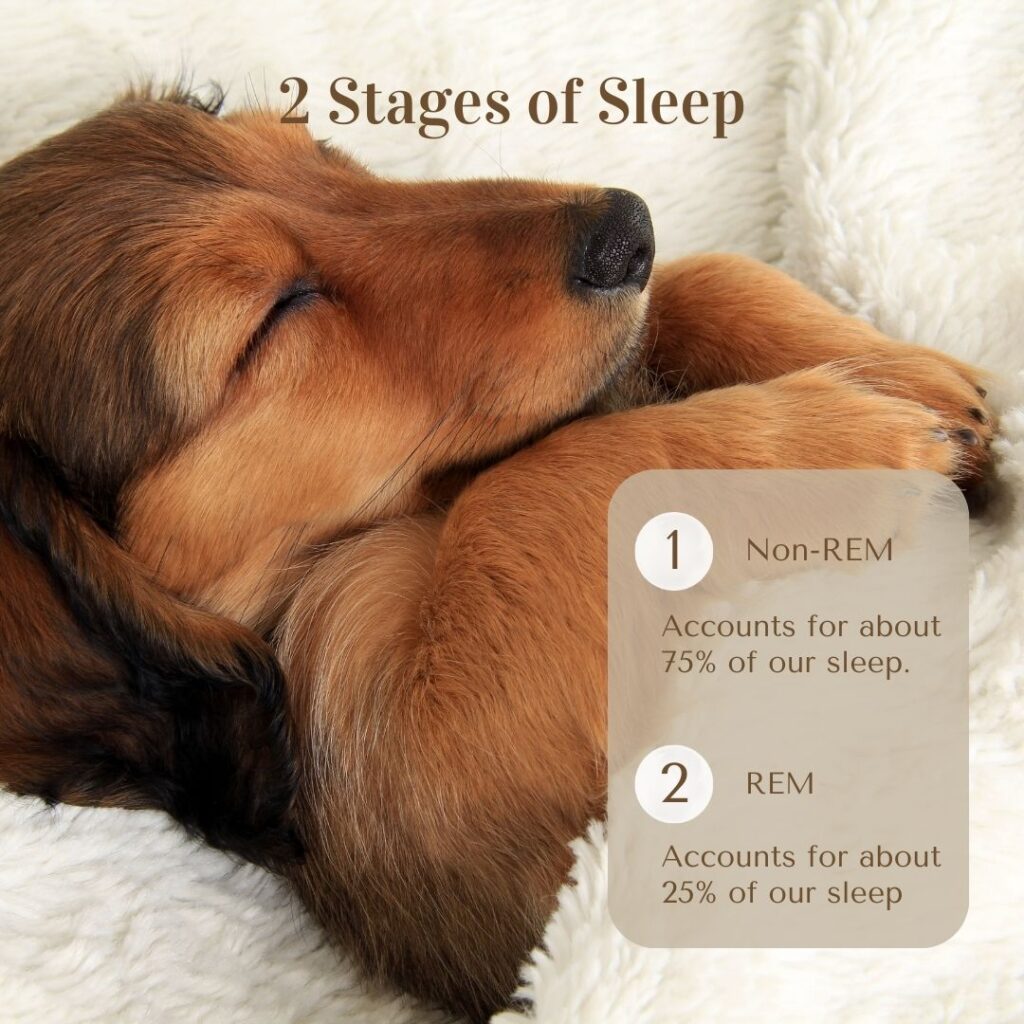
There are two main stages of sleep.
The first is Non-REM sleep. This stages is divided into another 3 (some say 4) stages. Essentially during each we are falling into a deeper sleep. The breathing slows, the heartrate slows, the body temperature lowers and it becomes harder to be woken up.
The deep sleep of this Non-REM stage is where the restorative actions of the body happens.
The 2nd stage is REM sleep. This is the rapid eye movement stage. The eyes actually move, the heartrate increases, the breathing increases and muscles become paralyzed. This is when we dream, whether you remember them or not.
REM sleep is believed to be essential to cognitive functions like memory, learning and creativity.
We run through 3 NonREM stages and 1 REM stage in roughly 90 minute cycles, 4 or 6 times a night.
Both of these stages are necessary for a healthy night’s sleep and for healing our body, boosting immunity and staying alert.
You’ve probably read about getting 8 hours of sleep a night for all this to work correctly, but that 8 hours is a very rough generalization. Some people need 9 hours, maybe more a night. Others only need 5 or 6 hours per night.
When you’ve had enough sleep you’ll wake up in the morning refreshed and ready to get up. Sleeping well, over several days and waking up well rested, without an alarm, will tell you roughly what amount of sleep you need.
For these types of headaches, getting your body’s required sleep at night is the best fix. But there are herbs that can help you sleep.
Again, we’re looking at calming and relaxing herbs. Herbs like lavender, catnip, skullcap, valerian and passion flower are all great for this. But drinking a cup of tea before going to bed can be counterintuitive.
If you want a tea before bed, try to drink it an hour or so prior to going to bed. I’ve found a tincture of valerian works well. In most cases, it’s a matter of retraining your body when it’s bedtime and creating a routine. Go to bed at the same time every night and following that same routine and your body will likely be ready to fall asleep when it’s time.
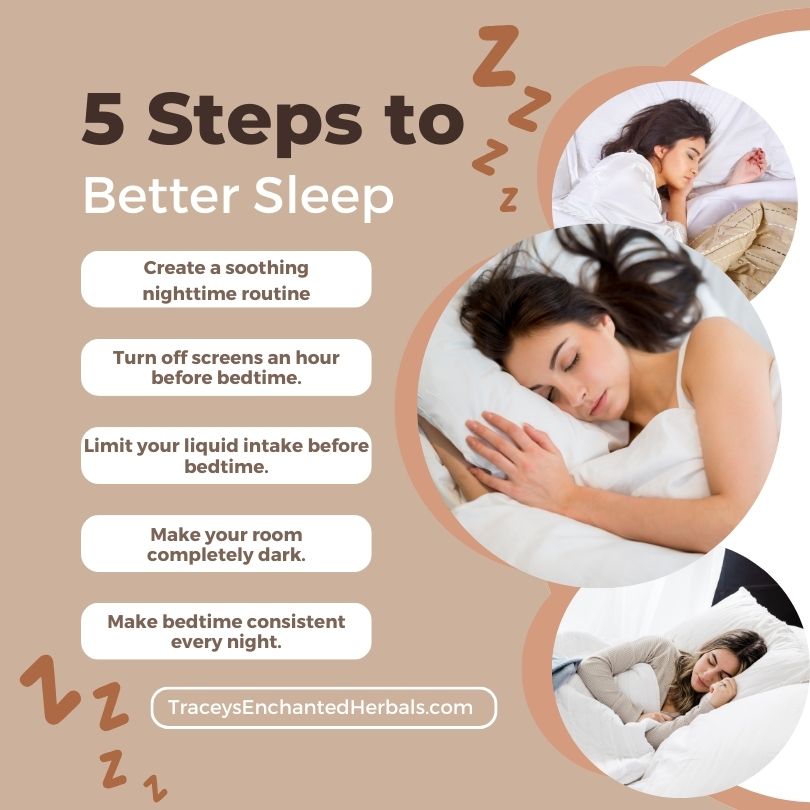
Illness
if you’re getting sick everything from tension to a fever can cause a headache. Fevers are notorious for all kinds of body aches including headaches.
But if you’re sick, the last thing you want to do is stop a fever from happening. That’s your body’s defense, your immune system, fighting whatever it is that’s making you sick. You don’t want to stop it.
You can, however, help the process so it can do it’s job and you can get to the other side of it. Once you begin to sweat, you know the fever’s broken and in most cases, you will feel better at that point. That’s not to say it might not start again, but once you know how to help it, you can help it out again and build your immunity build against whatever is making you sick for the next time.
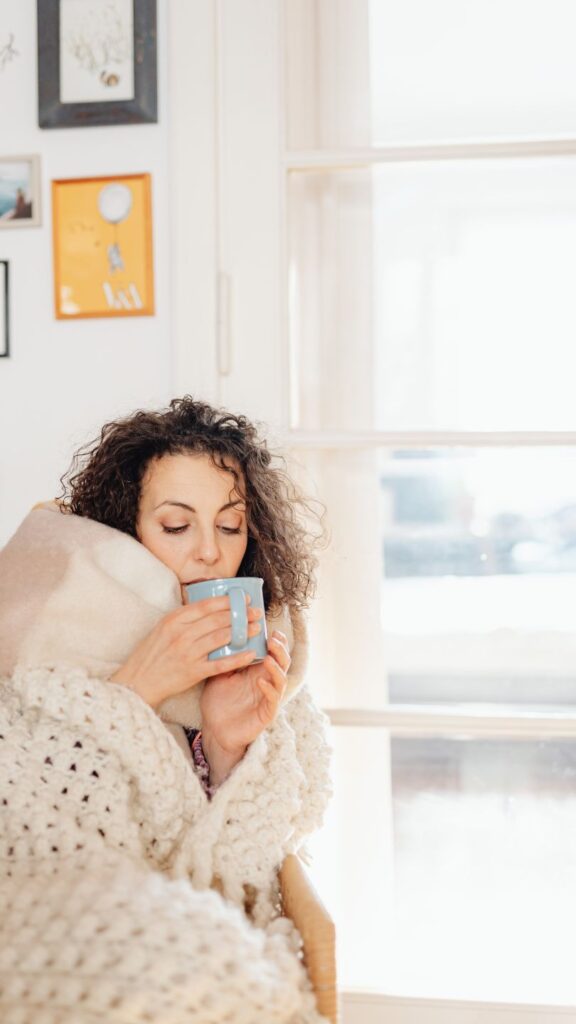
There are several herbs that can help facilitate the fever process, so you can get to the “sweat” on the other side.
A lot of our culinary herbs work great for this and they’re likely to be on hand when you need them. Things like rosemary and thyme are awesome for this. Both have hot energetics and can get you to the other side of a fever when you need it.
There are other herbs you can use though too. Herbs like yarrow, ginger or goldenrod.
Using these herbs as a tea is the best way to benefit from them. Drinking that warm liquid, wrapped in a warm blanket can help the process along. Or for some of these herbs, a strong infusion in a tub of hot water is just what you need. Soak as long as the water stays hot, then get out, wrap yourself in a warm blanket, take a nap and let the herbs do their job.
Your back is out
If your back is out of alignment you could have a nerve impingement or something pushing against a nerve causing pain. Or it can just be causing major tension in the muscles.
Some folks are able to pop their own backs into place, or lie on the floor and stretch their back into place.
If these are not things you are able to do, you may need to go see a chiropractor or your doctor and have them assist you in getting your back into alignment.
While herbs don’t necessarily help with this process, they do have their place here.
In many cases, when your back gets out, you’ll begin to tense up. Your back is literally trying to hold you in place so you don’t hurt yourself. It may even start to cause spasms. This tension will only makes it harder for someone to try to work on your back.
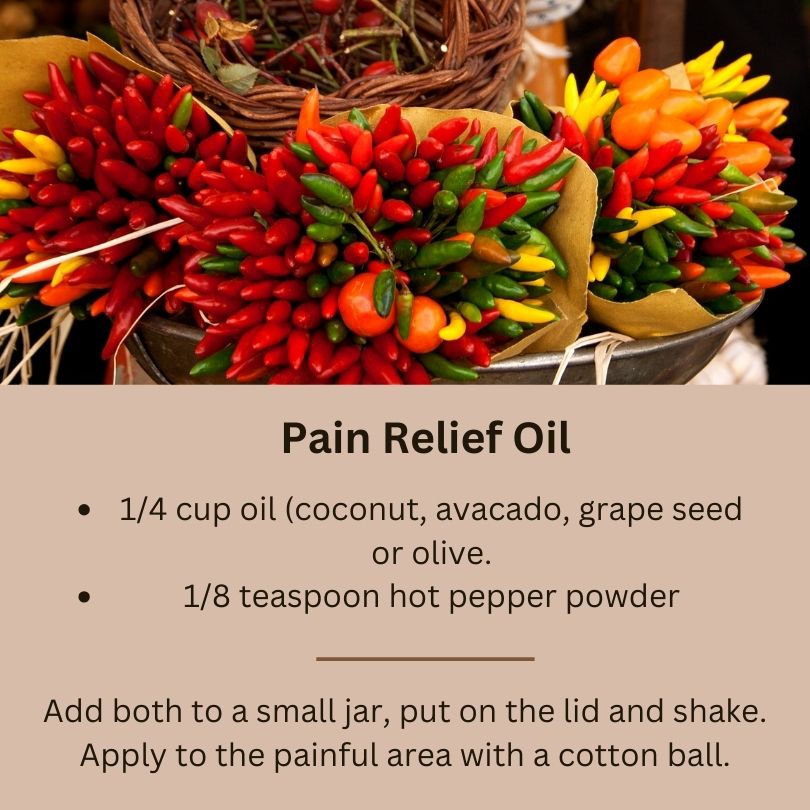
This is where herbs come in. You can use herbs to help relax yourself and your back muscles as much as possible which will allow your back to move more freely and the doctor to do the work he needs to do.
Here you can use calming and relaxing herbs. Chamomile, cramp bark, thyme, lavender or valerian are all good choices to help you relax.
Another idea would be to use herbs to help relieve the pain while you’re waiting to see a doctor to get things fixed. Capsaicin is a great way to help temporarily kill the pain. This is the hot in hot peppers. Here’s a recipe for a pain relieving oil that works great. Use it on your pain points. This will help block the pain from getting to your brain. It’s temporary but it helps.
Another pain reliever is willow bark. Make a tincture using the green inner bark. I keep it handy and use just 1 to 1.5 mL when I need it to kill the pain. It acts like an aspirin.
Dehydration
Dehydration is pretty much an epidemic these days. Problem is most folks don’t realize their thirsty. In many cases, they’ll automatically think they’re hungry. Strange I know, but it’s been proven that many folks who are thirsty first believe it to be hunger.
If you feel thirsty, you’re already dehydrated. Dehydration can cause a lot of different symptoms. Things like dry skin, headaches, rapid heartbeat, feeling dizzy or lightheaded and fatigue.
There’s all kinds of information out there that says you need to drink something like 64 oz of water a day (8 – 8oz glasses). That may be a very general round number to shoot for, but like sleep, this is highly individual to each person. A general rule of thumb would be to drink 1/2 ounce to 1 ounce of water for every pound you weigh. If you work out or do a lot of physical labor you’ll want to drink more than that.
And we do get some moisture from the foods we eat. Many of the fruits and veggies we eat have a large percentage of water in them.
Problem is we do a lot of things that dehydrate us. Drinking caffeinated or surgery drinks work against hydration. Caffeine is a diuretic and will cause you to lose water. And the sugary drinks like soda also contain caffeine and sodium both of which can lead to dehydration.
Drinking just plain water is always your best bet for fully rehydrating yourself. Or maybe you can add some berries or citrus for flavor. But drinking anything that doesn’t contain caffeine or sugar can help. Herbal teas fit into this category.
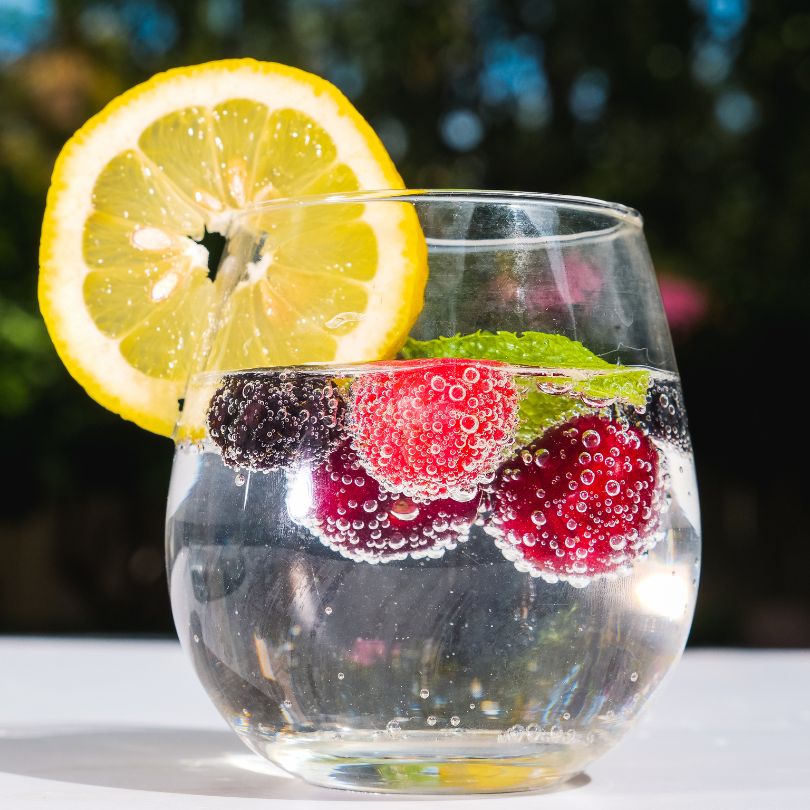
Another fix I’ve learned is using Himalayan salt in water. Not a lot, just about a 1/4 teaspoon to a cup or more of water. You want to use enough water to make it drinkable. I’ve used this more than once to get rid of a headache.
Eye Strain
Strained eyes can cause a headache quicker than anything. The biggest culprit? Your computer screen or any digital device for that matter. Many of us work in an office where we sit at a computer for 8 hours a day under bright artificial lights.
In addition to the screen itself causing eye strain, not taking sufficient breaks and resting your eyes can cause issues as well.
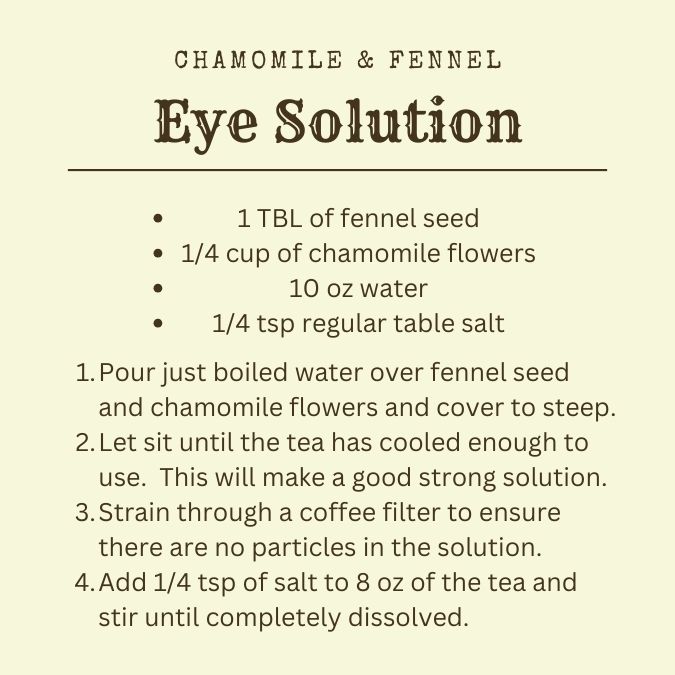
Not taking breaks doesn’t just apply to computer screens. That can mean reading a book, driving or doing anything that requires your eyes to specifically focus without taking breaks to allow them to relax and not have to focus so intensely.
This constant strain is a headache waiting to happen.
Chamomile, fennel seed, bilberry or even green tea are herbs that can help with eyes strain. Create a tea and use a compress on the eyes. Or create an eye wash and create a compress with cotton balls for the eyes. The eye wash is more of an eye solution so that if the liquid gets into your eyes it will be more soothing and not feel like rocks the way regular water does.
Headaches are not fun and they can put a stop to pretty much everything going on when they happen.
I hope you found an herbal way to help relieve your headache when it comes on again. Sometimes you drink them, other times you soak in them or other times you create a compress with them. One way or the other though, they’re there to help you get rid of the pain.
Have you used herbs to get rid of headache pain before? Which one did you use? How did you use it?
I’d love to hear about your experiences in the comments below.
